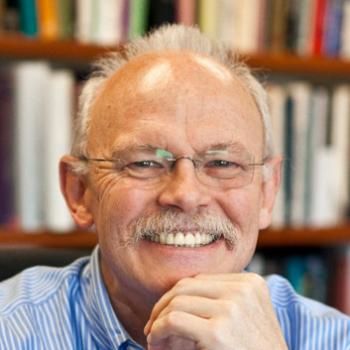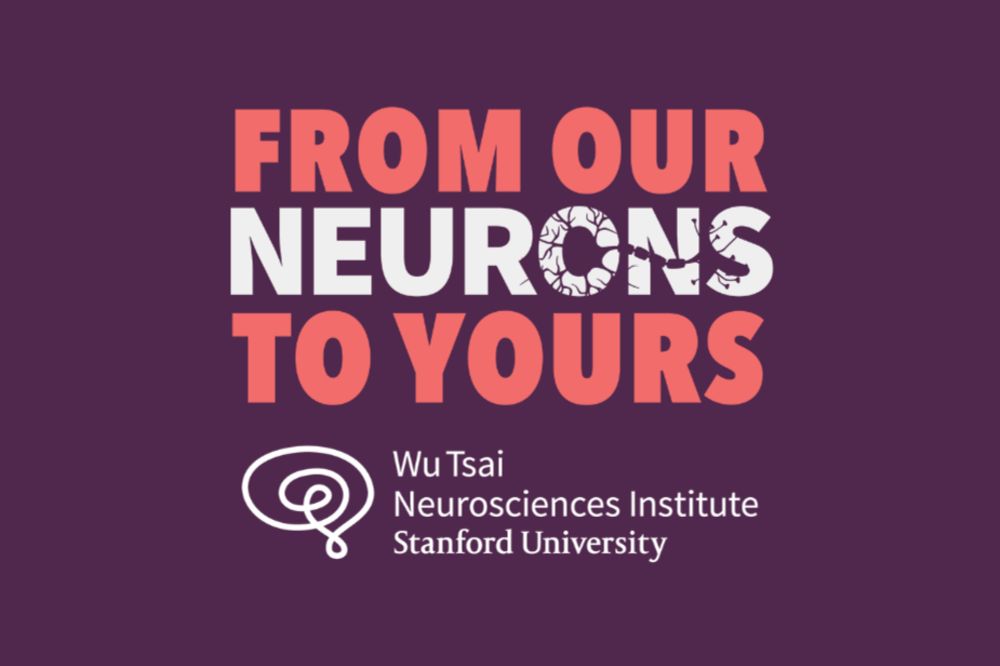brainresilience.stanford.edu/news/new-atl...

brainresilience.stanford.edu/news/new-atl...

Hong is honored for achieving optical transparency in live animals via absorbing dyes, a transformative advance in #biophotonics. 💡
spie.org/news/stanfor...

Hong is honored for achieving optical transparency in live animals via absorbing dyes, a transformative advance in #biophotonics. 💡
spie.org/news/stanfor...
From studying post-viral fatigue to engineering transparent mouse brains, these five projects will push the bounds of what’s possible in the field.
Learn more: neuroscience.stanford.edu/news/big-ide...

From studying post-viral fatigue to engineering transparent mouse brains, these five projects will push the bounds of what’s possible in the field.
Learn more: neuroscience.stanford.edu/news/big-ide...
In normal flies (left), olfactory receptor axons (green) don’t connect with dendrites of other projection neurons (magenta). In rewired flies (right), green axons retarget to match magenta dendrites.

In normal flies (left), olfactory receptor axons (green) don’t connect with dendrites of other projection neurons (magenta). In rewired flies (right), green axons retarget to match magenta dendrites.


As we look ahead to the new year, we compiled some key studies covered by Wu Tsai Neuro and @brainresilience.bsky.social in 2025.
🔗 neuroscience.stanford.edu/news/2025-ne...

As we look ahead to the new year, we compiled some key studies covered by Wu Tsai Neuro and @brainresilience.bsky.social in 2025.
🔗 neuroscience.stanford.edu/news/2025-ne...
"Science generates the accumulation of knowledge so that physicians can use that knowledge to heal people, and I think that was the reason that I wanted to be a neuroscientist."
youtube.com/shorts/C_USl...

"Science generates the accumulation of knowledge so that physicians can use that knowledge to heal people, and I think that was the reason that I wanted to be a neuroscientist."
youtube.com/shorts/C_USl...
#ChristmasMeeting_IN

#ChristmasMeeting_IN
Each lab shared ongoing work, sparking conversations and cross-disciplinary connections.



Each lab shared ongoing work, sparking conversations and cross-disciplinary connections.

Subscribe via email: stanford.us11.list-manage.com/subscribe?u=...
Follow on LinkedIn: www.linkedin.com/company/stan...

Subscribe via email: stanford.us11.list-manage.com/subscribe?u=...
Follow on LinkedIn: www.linkedin.com/company/stan...
Our 12th annual symposium explored how our brains and bodies communicate—and what that means for our health and well-being.
Learn more: neuroscience.stanford.edu/news/neurosc...




Our 12th annual symposium explored how our brains and bodies communicate—and what that means for our health and well-being.
Learn more: neuroscience.stanford.edu/news/neurosc...
This is an immersive, hands-on course on generating, probing and manipulating stem cell-derived neural #assembloids and #organoids for disease and development modeling.

This is an immersive, hands-on course on generating, probing and manipulating stem cell-derived neural #assembloids and #organoids for disease and development modeling.
Check out my conversation with neural network pioneer Jay McClelland, and stay tuned for more on AI and neuroscience in 2026!
Stanford cognitive scientist Jay McClelland explains on our podcast, exploring the neural network view of the mind and what it means for AI.
Listen now: neuroscience.stanford.edu/news/emergen...


Check out my conversation with neural network pioneer Jay McClelland, and stay tuned for more on AI and neuroscience in 2026!
Cindy Lin gave a talk about "Investigating regulators of GCase activity using CRISPR KO screens," and Odilia Sianto shared her research on "Nonsense-mediated decay masks cryptic splicing events caused by TDP-43 loss."


Cindy Lin gave a talk about "Investigating regulators of GCase activity using CRISPR KO screens," and Odilia Sianto shared her research on "Nonsense-mediated decay masks cryptic splicing events caused by TDP-43 loss."
Exciting meeting in 2026 in Switzerland!!
neuro-unige.ch/news/csf-mee...

Exciting meeting in 2026 in Switzerland!!
neuro-unige.ch/news/csf-mee...
Stanford cognitive scientist Jay McClelland explains on our podcast, exploring the neural network view of the mind and what it means for AI.
Listen now: neuroscience.stanford.edu/news/emergen...


Stanford cognitive scientist Jay McClelland explains on our podcast, exploring the neural network view of the mind and what it means for AI.
Listen now: neuroscience.stanford.edu/news/emergen...
Learn more: brainresilience.stanford.edu/news/qa-key-...

Learn more: brainresilience.stanford.edu/news/qa-key-...
Can BCIs bypass those broken circuits to help people speak again? Erin Kunz shares how they work and what’s ahead.
neuroscience.stanford.edu/news/could-b...

Can BCIs bypass those broken circuits to help people speak again? Erin Kunz shares how they work and what’s ahead.
neuroscience.stanford.edu/news/could-b...
🔗 brainresilience.stanford.edu/news/mind-bl...




🔗 brainresilience.stanford.edu/news/mind-bl...

Neuroengineer Erin Kunz builds BCIs to restore speech in people with paralysis. She explains how they decode brain signals—and why imagined thoughts are harder to access than you might think.
Listen now: neuroscience.stanford.edu/news/could-b...


Neuroengineer Erin Kunz builds BCIs to restore speech in people with paralysis. She explains how they decode brain signals—and why imagined thoughts are harder to access than you might think.
Listen now: neuroscience.stanford.edu/news/could-b...

